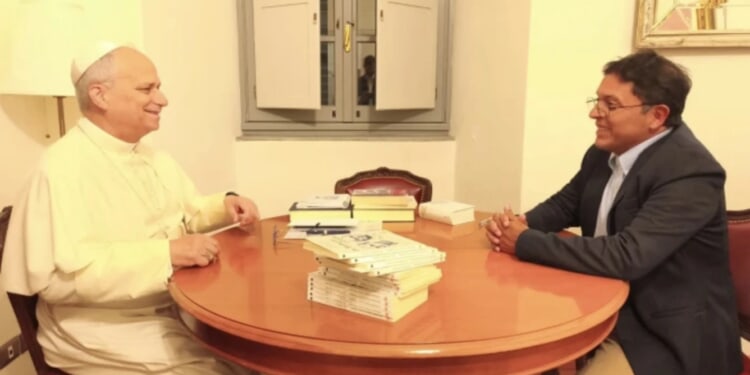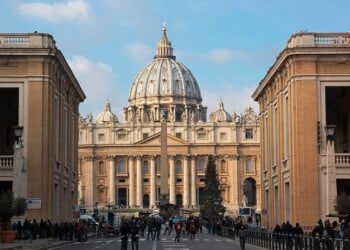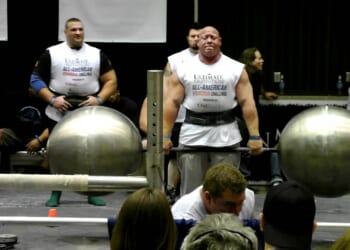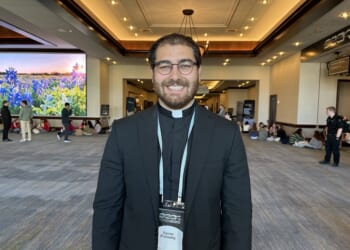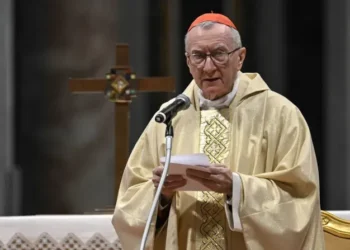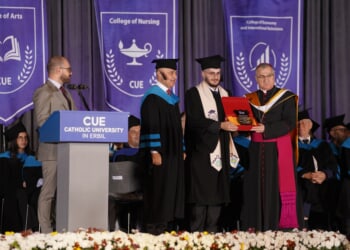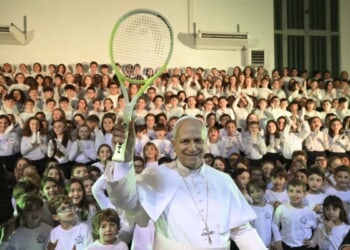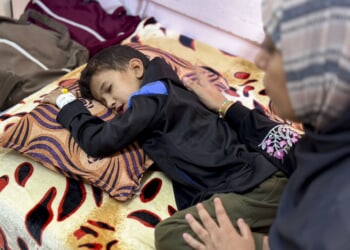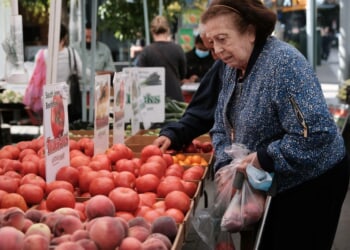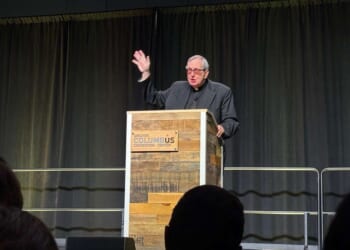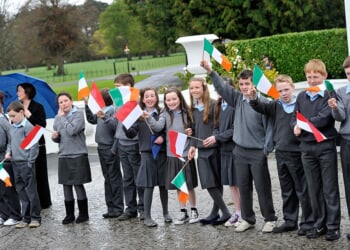Vatican City, Nov 10, 2025 /
07:00 am
His voice reveals, above all, the gratitude he feels toward his friend, Pope Leo XIV. From this friendship, forged over more than three decades, comes the Spanish-language book “From Robert to Leo,” published by Mensajero, in which Armando Lovera, originally from Iquitos, Peru, recounts various little-known episodes from the pontiff’s life, like the day many parishioners in Trujillo, Peru, thought that Father Robert Prevost had died.
“In reality, it was a young man, an aspiring Augustinian, who died in a bus accident while traveling to Lima for the new year,” Lovera explained in an interview with ACI Prensa, CNA’s Spanish-language news partner.
The young man’s parents, who were from a rural area north of Trujillo, didn’t have the means to retrieve their son’s body and asked “Father Roberto” to bring it back to their village.
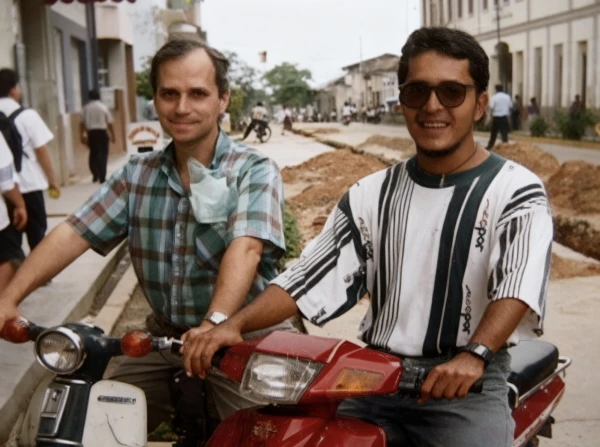
“He drove over 2,000 kilometers [1,240 miles] round trip to do them a favor,” the author explained. But when making the arrangements [to return the body], he continued, “they wrote down his name incorrectly and included him on the list of victims,” which ended up being published in a local Trujillo newspaper.
“When people found out, especially the poorest people in the parish, they went to the Augustinian house in tears, newspaper in hand, to offer their condolences,” Lovera recounted. But to their surprise, it was Prevost himself who opened the door.
“What impresses me most about this story is the availability he has always shown to his friends, and, on the other hand, the affection of the people,” he commented.
Lovera vividly remembers the first time he met the future pope in 1991 in Colombia. “At that time, in my parish, the young people were quite boisterous and informal, and when I was told he was a canon lawyer, I thought, ‘Here comes a very formal, rule-bound gentleman.’ But as soon as he introduced himself and we talked, he disarmed us. Our prejudices vanished instantly because he was a very approachable person,” the author related.
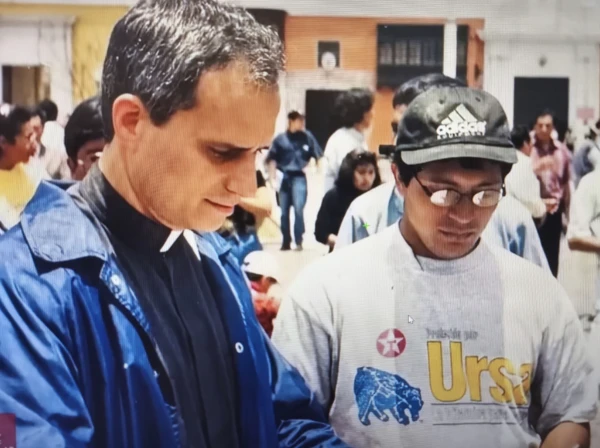
The following year, in 1992, Lovera arrived at the Augustinian formation house in Trujillo, under the direction of Prevost. For seven years they shared community life and pastoral experiences, which gave rise to a deep friendship that has withstood the passage of time and distance.
“I found in him a dazzling warmth. From that day on, he became simply Roberto, or Father Roberto,” Lovera recalled.
Prevost was the parish priest at Our Lady of Monserrate in Trujillo from 1992 to 1998. Lovera vividly remembers that community in its early days: “My wife was from that parish. We witnessed [its construction] when it was still just a sandy area, and on Sundays we would bring our own chairs to attend Mass, which had a very simple altar.”
Given the presence of armed subversive groups in the regions where Prevost and other missionaries carried out their ministry in the 1990s, “they were advised to leave, but he and his community decided to stay. And that witness deeply impacted me. I was moved by his courage, his sense of mission,” Lovera recounted. “Besides, he was a mathematician. And I love mathematics. That also brought us together.”
The friendship between the two also grew around music, a shared passion. “Roberto loved music. We started singing Peruvian music together, as well as Augustinian hymns. He had a very good voice and enjoyed singing with people,” he recalled.
Prevost’s mother, Mildred, was a prominent contralto in Chicago
The pope’s musical inclination has deep roots. As Lovera recounted in the book, Prevost’s mother, Mildred, played the organ and was a prominent contralto (the lowest female vocal range) in Chicago, participating in the 1941 Chicagoland Music Festival. She also sang with devotion the “Ave Maria” at Sunday Mass.
(Story continues below)
Subscribe to our daily newsletter
Many years later, Lovera recounted, Mildred’s electric organ ended up at the Augustinian formation house that Prevost founded in Trujillo. Hearing about that “made an impression on me. There was something of his mother, of her faith, that continued to resonate there. It was as if her prayer continued among us,” he explained.
When Prevost was assigned to Chicago in 1999, their friendship remained alive thanks to technology. “We exchanged emails. He is a very approachable person. That familiarity was never lost,” Lovera related.
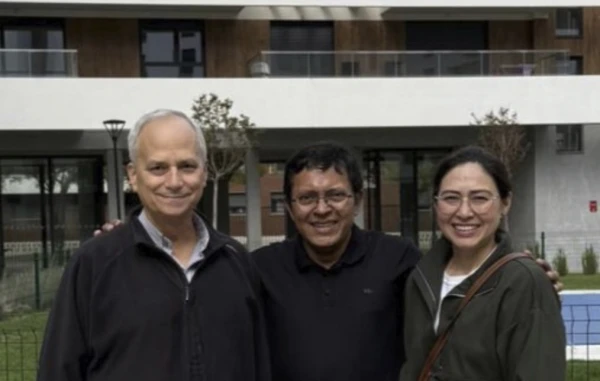
Over the years, Lovera came to understand that Prevost’s simplicity concealed a profound vocation for service. “He never sought positions within the Church. That touched me deeply. I used to say then, ‘This person is someone who reveals God to me.’ He stood out for his generosity, his ability, and his command of languages.”
He recalled with humor his own reactions to his friend’s rise to the papacy: “I honestly would have preferred that he had remained a bishop, so as not to lose touch so much. Then, in 2021, some friends were saying that Father Roberto would be the next pope, although I thought they were exaggerating.”
However, in the days leading up to the conclave, Prevost’s name began circulating on lists of papal candidates published by the media, and Lovera began to consider that possibility.
“I supposed that if they discovered what kind of person he was, they would elect him. And that’s what happened,” explained Lovera, who currently coordinates the editing of religious texts at the Loyola Communication Group.
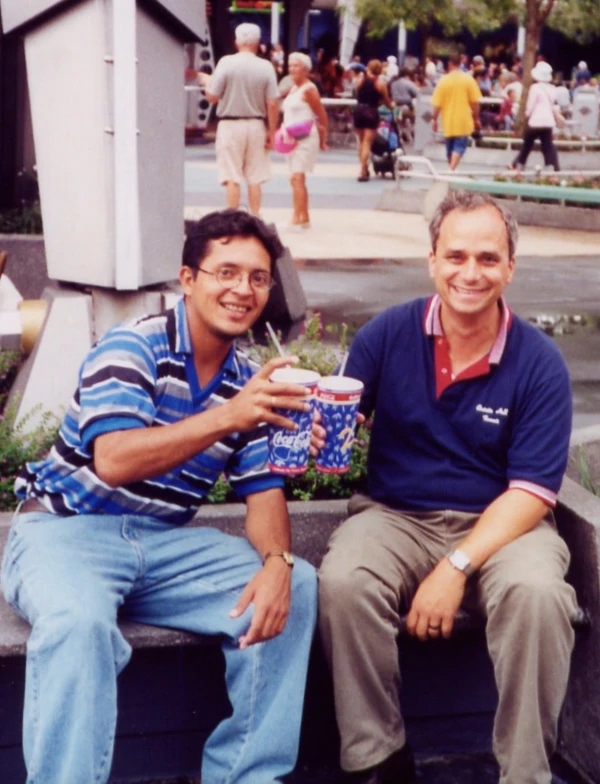
“The goal of the book,” Lovera explained, “is to show [the reader] a friend who offers his friendship and, with it, the friendship of the one who gives meaning to life: Jesus. Roberto always wanted the doors of the diocese to remain open to everyone. He never acted like a distant sovereign or a bureaucrat. He always behaved like a brother among brothers, with the responsibility of leading and making decisions, but always with reasoning.”
For Lovera, that is the defining characteristic of the current pontiff: “Pope Leo XIV has not changed in his essence. He is the same approachable, joyful, and brotherly priest I met in 1991. Only now that approachability carries the weight and grace of guiding the entire Church.”
This story was first published by ACI Prensa, CNA’s Spanish-language news partner. It has been translated and adapted by CNA.

